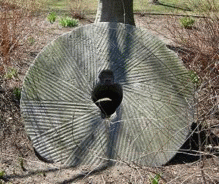 |
| Classrooms are for learning, not policing. |
VOM sister-mission China Aid reported on Tuesday that the Public Security Bureau (PSB), accompanied by officials from education bureaus, raided Chinese kindergarten classrooms in Guangdong, Guangxi and Hainan.
Sun Haiping, wife of house church pastor Wang Dao, is in charge of the three schools. She is also part of the Chinese delegation, now in Washington, DC, focusing on democracy and religious freedom. Her main purpose as a part of this delegation is to elaborate on the persecution of house churches in Guangzhou.
“If this was a normal school inspection, the PSB would not have been there, and it would have been led by the Education Bureau,” she said on Tuesday. “The schools are at risk of being shut down.”
During the invasions, PSB questioned teachers and children concerning where Sun was, and what her purpose was for traveling to the US. They also asked if the school owned Bibles or distributed them to students.
According to Sun, the schools where raided by police because she is visiting the United States to speak about democracy and religious freedom. Authorities applauded Sun’s generous actions in the aftermath of the Sichuan earthquake in May 2008, but now she is being targeted for speaking about the freedom and justice that the Chinese constitution promises, but the authorities withhold from citizens.
Please pray that Sun Haiping and Wang Dao will stay strong and faithful and that the children in these schools will be able to continue receiving quality education from these equipped believers.













 Dora Lilia Saavedra and her husband, Ferley, spoke freely about Christ to the children they taught in Santana Ramos, a farming village deep in the Colombian jungle and a hotspot for guerrilla violence. Each day children ages six to 12 piled into Dora's one-room, wooden schoolhouse and listened to her talk about Jesus, but this was risky. She was luring more away from the guerrillas’ cause. Guerrillas also didn’t like Dora’s commitment to truth. “Christians are dangerous,” they repeatedly said. “Christians cannot lie. If the army asks them about us, they will tell the truth.”
Dora Lilia Saavedra and her husband, Ferley, spoke freely about Christ to the children they taught in Santana Ramos, a farming village deep in the Colombian jungle and a hotspot for guerrilla violence. Each day children ages six to 12 piled into Dora's one-room, wooden schoolhouse and listened to her talk about Jesus, but this was risky. She was luring more away from the guerrillas’ cause. Guerrillas also didn’t like Dora’s commitment to truth. “Christians are dangerous,” they repeatedly said. “Christians cannot lie. If the army asks them about us, they will tell the truth.”  After the neighbour’s warning, Dora and her husband had a final devotion with their three children. The couple spent all night praying and fasting.
After the neighbour’s warning, Dora and her husband had a final devotion with their three children. The couple spent all night praying and fasting. 


![India (Sep 2009) 368[4] India (Sep 2009) 368[4]](https://blogger.googleusercontent.com/img/b/R29vZ2xl/AVvXsEhoblvSNATtYmF5sqYicNeATjcw2M88WWZDxr7mN6c3DkyNUtI49vF02eq70glIaGFhnaKupppv7pc8jRGfcYaJk2OibvSoSL6znvbAC3ZNDkCSt9XwlyRjEIlH5jJEDdXkapJLgp_l44o8/?imgmax=800) It has been nearly two years since anti-Christian violence erupted in India's Orissa state. The attacks claimed the lives of approximately 100 Christians while dozens of church buildings and homes were destroyed (
It has been nearly two years since anti-Christian violence erupted in India's Orissa state. The attacks claimed the lives of approximately 100 Christians while dozens of church buildings and homes were destroyed ( A verdict of culpable homicide for two Indian men accused of killing a paralyzed Christian during anti-Christian riots in Orissa has disappointed Church people.
A verdict of culpable homicide for two Indian men accused of killing a paralyzed Christian during anti-Christian riots in Orissa has disappointed Church people.  Pradhan’s brother Ravinder also expressed dissatisfaction over the outcome of the case as the men were not convicted for murder. “There are other accused still to be arrested and prosecuted,” he said.
Pradhan’s brother Ravinder also expressed dissatisfaction over the outcome of the case as the men were not convicted for murder. “There are other accused still to be arrested and prosecuted,” he said. 


